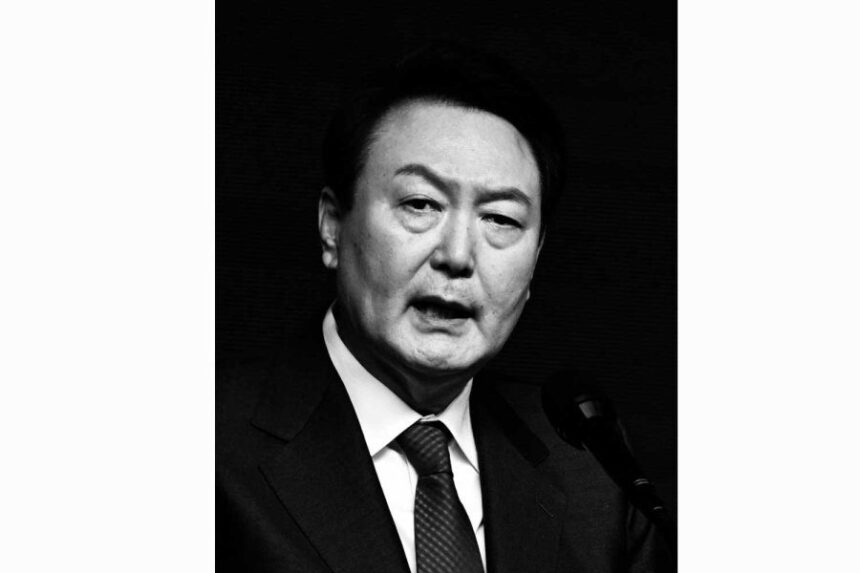December 10, 2024
Seoul – The idea of a sitting president being arrested, once considered unthinkable, is now a real possibility in South Korea.
South Korean President Yoon Seok-yeol, who narrowly avoided impeachment on Saturday, faces investigations by the country’s three main investigative agencies after declaring martial law last week, sparking a huge political backlash. On Monday afternoon, the Justice Department imposed a travel ban on President Yoon, making him the first sitting president in South Korean history to face such a measure.
Does this all indicate that Yin may be arrested in the near future? How will this unprecedented situation occur?
Take a look.
Yin’s arrest may be ‘legal’
South Korea has had many former presidents arrested, but never a sitting president because presidents are protected by criminal immunity while in office.
Article 84 of the Constitution states: “The President shall not be liable to criminal charges while in office, except for rebellion or treason.”
The only presidents charged with treason – Chun Doo-hwan and Roh Tae-woo, who led military coups as military generals – were investigated years after stepping down from the top job.
However, Yin was accused of rebellion while in office.
On the evening of December 3, after the president declared martial law, the military was dispatched to the National Electoral Commission and Congress.
Although the reasons for the former were not specified at the time, the latter had the clearer purpose of preventing lawmakers from voting to overturn martial law. Both agencies have constitutional status independent of the government, meaning Yin’s actions could be considered unconstitutional.
“Any criminal suspect who commits a crime that may be sentenced to death, life imprisonment, or fixed-term imprisonment of more than three years or life imprisonment”, and if the criminal suspect is likely to destroy evidence, escape, or has escaped in accordance with Article 200-3 of the Criminal Procedure Law . According to Article 87 of the Criminal Law, the punishment for leading, participating in, and directing rebellion includes the death penalty and life imprisonment.
In short, from a strictly legal perspective, a sitting president suspected of rebellion can be arrested and investigated.
What if Yin resists?
Local experts pointed out that if Yin refuses to obey law enforcement, any attempts to take coercive measures may be limited in practice.
The Presidential Security Service is tasked with protecting the country’s leaders around the clock, and Yoon’s authority as the sitting president remains intact.
The Defense Ministry reiterated on Monday that Yoon Zheng remains the legitimate commander-in-chief, although he may be in a “vegetative” state during his presidency.
In February 2017, during a criminal investigation into alleged corruption by former President Park Geun-hye, police were blocked from entering the compound by the presidential security service despite a search and seizure warrant issued by a court to the presidential office. The standoff eventually led to a compromise, with the Blue House handing over the requested data.
Park Geun-hye’s presidential powers were suspended at the time due to the impeachment motion passed by the National Assembly. A month later, the Constitutional Court confirmed her removal from office.
Yoon currently retains all the powers of the presidency — even if the political situation prohibits him from actively exercising them — making the prospect of his arrest unclear.
What happens after being arrested?
Even if Yin is arrested, problems remain because the constitution does not provide for procedures for a president to be detained in connection with a criminal investigation.
Article 71 of the Constitution stipulates that when the office of the President is vacant or the President is unable to perform his duties for any reason, the Prime Minister or a member of the State Council shall act in accordance with the order prescribed by law.
In this case, Prime Minister Han Deok-soo will become acting president.
However, a situation in which the president is temporarily detained in connection with a criminal investigation has never been considered before, meaning there could be controversy if Yoon decides to challenge the “vacancy” clause.
In the most extreme cases, we might even see a president trying to govern from behind bars.












